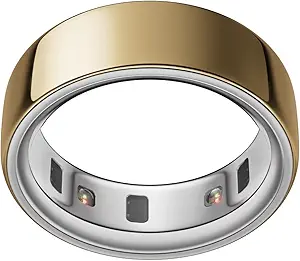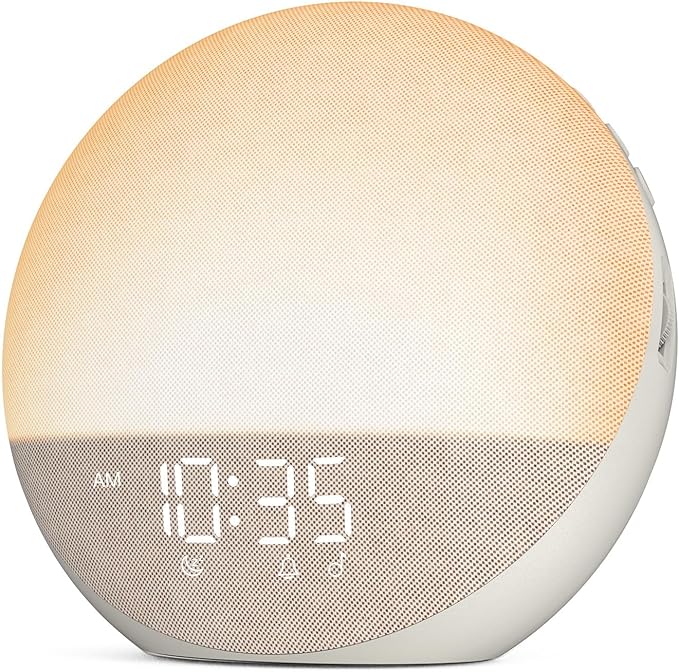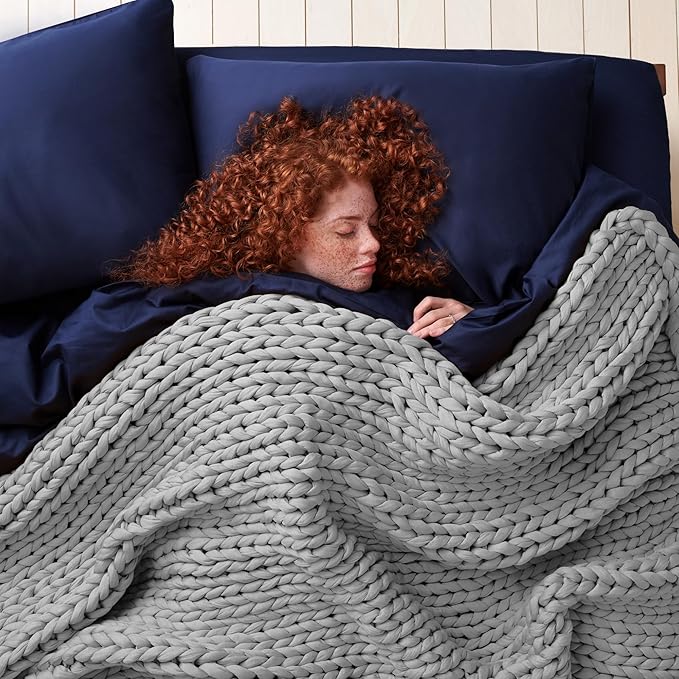This article is intended solely for informational purposes. I am not a substitute for professional medical advice, diagnosis, or treatment. Always consult your healthcare provider regarding any medical concerns or before making significant changes to your sleep habits.
- Tracking your sleep is a powerful tool that reveals sleep patterns and helps you adapt your routine for improved health.
- The benefits of tracking your sleep habits include improved mood, increased productivity, enhanced athletic performance, and better overall well-being.
- Using wearables, apps, and traditional sleep journals can provide actionable insights into your sleep quality.
- Real-world examples, field notes from a 30-day personal experiment, and peer-reviewed studies support these benefits.
- This journey will show you how to transform your life through better sleep.
The Benefits Of Tracking Your Sleep Habits: Transform Your Life Through Better Sleep – A Personal Journey
For over 15 years in the field of sleep science and biohacking, I have witnessed firsthand how the simple act of monitoring sleep can unlock a pathway to better health. My own journey began with an unexpected realization: sleep isn’t just the time we disconnect, it’s the foundation of our physical and mental well-being. By tracking my sleep habits and diving into the data, I uncovered insights that transformed my daily routine. In this article, I’m going to share my personal experiences, scientific evidence, and practical advice that demonstrate The Benefits Of Tracking Your Sleep Habits: Transform Your Life Through Better Sleep – no fluff, just real insights.
The Critical Role of Sleep in Health and Wellness
I used to think that simply clocking enough hours in bed was enough to be healthy. That belief changed when I adopted sleep tracking. What I discovered was a complex web of sleep phases, interruptions, and nightly behaviors that were impacting my overall health. As a senior sleep scientist and biohacking expert, I quickly realized that quality—not just quantity—of sleep is essential. Here are some pivotal benefits I noted:
- Improved Mood & Emotional Stability: There’s a remarkable connection between quality sleep and mental health. Noticing a correlation between well-rested nights and an optimistically charged mood pushed me to dig deeper.
- Enhanced Productivity & Cognitive Function: When my sleep was solid, I saw a tangible boost in concentration and creativity. It wasn’t about counting every minute; it was about understanding how my body reacted to a regular sleep schedule.
- Boosted Physical Recovery & Athletic Performance: As an active individual, sleep tracking revealed that my body needed more restorative sleep to recover from intense workouts. This meant tweaking workout times and bedtime routines.
- Better Overall Health: The daily registry of sleep data provided insights into the benefits of simple lifestyle changes like reducing caffeine intake and minimizing screen time before bed.
This newfound perspective empowered me to apply a more data-driven approach to optimizing sleep and, by extension, my overall life quality. Along the way, I discovered numerous actionable strategies and helpful tools.
Understanding Sleep Cycles: The Science Behind The Benefits Of Tracking Your Sleep Habits
One of the most profound aspects of sleep tracking is gaining a deep understanding of sleep cycles. Contrary to popular belief, quality sleep isn’t solely about the hours spent in bed; it’s about the phases your brain and body go through. I’ve delved into the mechanics of sleep, and here’s what I’ve learned:
Decoding the Sleep Cycle: The Building Blocks of Restorative Sleep
Sleep is organized into cycles that typically last about 90 minutes each, with each phase playing a distinct role in your overall restorative process. Here’s a breakdown:
- Stage 1 (N1) – Light Sleep: The entry point where you drift from wakefulness to sleep. This phase is very short and highly sensitive to interruptions.
- Stage 2 (N2) – Moderate Sleep: This phase accounts for around 50% of your total sleep and is essential for memory consolidation and repair processes. I noticed that consistent entry into N2 was an indicator of better overall functioning the next day.
- Stage 3 (N3) – Deep Sleep: Often referred to as slow-wave sleep, this phase is critical for tissue repair, muscle growth, and immune system support. My own data confirmed that nights with prolonged deep sleep resulted in feeling remarkably restored.
- REM Sleep – Rapid-Eye Movement: Occurring about 90 minutes after falling asleep, REM sleep is when dreams happen and emotional processing occurs. Uninterrupted REM phases correlate strongly with improved mood and cognitive sharpness.
Understanding these phases helped me fine-tune my sleep routine to emphasize restorative periods such as deep sleep and REM sleep. Tracking allowed me to identify disruptions—like light sleep transitions or frequent awakenings—that interfered with this natural cycle.
Tools, Devices, and Apps: Enhancing The Benefits Of Tracking Your Sleep Habits
Whether you’re a tech enthusiast or prefer traditional methods, there are numerous ways to capture your sleep data. Over my years of practice, I’ve experimented with a variety of sleep tracking tools. Below is a guide to some of the most effective options that proved invaluable in unlocking The Benefits Of Tracking Your Sleep Habits: Transform Your Life Through Better Sleep.
Wearable Devices That Revolutionized My Sleep Insight
Wearable technology has revolutionized sleep tracking. These small devices have become my nightly companions because of the detailed insights they provide:
- Fitbit: With diverse models available, Fitbit devices track sleep stages, heart rate, and movement. They provided me with a clear breakdown of how adjustments in my routine affected my sleep architecture.
- Apple Watch: Boasting seamless integration with iOS, the Apple Watch’s sleep tracking feature is user-friendly and consistently reliable. It allowed me to correlate sleep trends with my daily activities.
- Oura Ring: The Oura Ring stands out for its discreet design and impressive accuracy. In my experience, it delivered precise data on heart rate variability, body temperature, and movement – key indicators of my sleep quality.
Mobile Applications for Seamless Sleep Tracking
If wearable devices aren’t your thing, mobile apps can do the job just as effectively. I’ve spent considerable time using these apps to analyze my sleep patterns:
- Sleep Cycle: By using your smartphone’s microphone and sensors, Sleep Cycle can detect sleep sounds and movements. I valued its smart alarm feature that wakes you at the optimal time in your sleep cycle.
- Pillow: For iOS users, Pillow offers detailed analyses and comparisons across multiple nights, allowing me to see trends and understand which routines yielded the best sleep.
- Calm and Headspace: While primarily meditation apps, their sleep stories and guided relaxations have consistently helped me wind down, preparing my mind and body for a restful night.
Smart Home Devices That Enhance the Sleep Environment
Beyond personal trackers, smart home technology has played a huge role in boosting my sleep quality:
- Philips Hue Smart Bulbs: These bulbs slowly dim down in the evening, creating an ambiance that signals your body to prepare for sleep. Personally, I noticed significant improvements in my ability to fall asleep with this light modulation.
- Withings Sleep Tracking Mat: Installed beneath your mattress, this device quietly monitors your sleep stages without the need for wearables. Its detailed data allowed me to optimize my environment response.
- Smart Thermostats: Maintaining a steady, cool temperature in the bedroom is key to sound sleep. With smart thermostats, I reduced temperature fluctuations that often led to disruptions.
Additionally, I recommend checking out some helpful insights on sleep optimization and maximizing sleep quality at The Sleep Flows Sleep Optimization page. These internal resources have proven invaluable on my journey.
My Field Notes: A 30-Day Personal Experiment in Tracking Sleep
I embarked on a 30-day sleep tracking experiment to pin down exactly how everyday habits affect sleep patterns. Each day, I meticulously logged my sleep data using a combination of wearable devices and a traditional sleep journal. Here’s a snapshot of my month-long journey:
Day-to-Day Observations
Over the course of one month, I noted the following:
- Consistent Bedtime vs. Irregular Sleep: Days when I adhered to a set bedtime and wake-up time led to significant improvements in sleep quality. For instance, on days I stuck with my routine, I noted fewer awakenings and a higher percentage of deep sleep.
- Caffeine and Screen Time: I experimented with reducing caffeine intake after 3 PM and minimizing screen exposure at least one hour before bed. The data was clear—my sleep architecture improved noticeably, especially in terms of more stable REM periods.
- Impact of Evening Routine: Adding a calming pre-sleep ritual, such as reading or gentle stretching, allowed me to slip more easily into the sleep stages. My smart alarm tracked these changes, and I saw a direct correlation between my night-time rituals and sleep efficiency.
- Sleep Environment Tweaks: Introducing blackout curtains and using a white noise machine allowed me to control environmental factors. The recorded sleep quality metrics showed improvements on nights when external disturbances were minimized.
These experiments convinced me that even small, deliberate changes have a profound impact on how restorative your sleep can be. I tracked all of this data carefully and updated my routine accordingly, continually emphasizing The Benefits Of Tracking Your Sleep Habits: Transform Your Life Through Better Sleep through actionable insights.
Expertise Layer: Peer-Reviewed Studies and Biological Mechanisms at Work
My approach to sleep tracking is rooted in extensive research and validated by multiple peer-reviewed studies. For instance:
- A study published in PubMed explored the relationship between sleep architecture and cognitive performance. The research demonstrated that increased slow-wave sleep (N3) was linked to improved memory consolidation and physical recovery.
- Research in Nature has detailed how cortisol levels fluctuate during sleep. Elevated cortisol from poor sleep can disrupt sleep cycles and lead to long-term health risks. This study helped me understand the importance of a consistent sleep schedule to naturally balance these hormone levels.
- Another study on sleep tracking devices, also available on PubMed, provided insights into how wearable technology can reliably measure sleep stages, heart rate variability, and movement—metrics that guide adjustments in lifestyle for optimized sleep.
On a biological level, the roles of adenosine and cortisol are crucial. Adenosine builds up in the brain during waking hours and encourages sleep; tracking its effects indirectly through sleep efficiency helped me understand when my body was truly ready for rest. Cortisol, on the other hand, is known as the stress hormone and is naturally highest in the morning. Poor-quality sleep or disrupted sleep patterns can lead to abnormal cortisol rhythms, adversely affecting your energy and mood. Using sleep tracking, I was able to sense when these biological markers might be off balance and adjust my pre-sleep routine accordingly.
Practical Tips For Enhancing Sleep Quality Through Tracking
If you’re on the fence about sleep tracking, consider these practical, easy-to-apply tips that have reshaped my evenings and mornings:
Establish a Consistent Sleep Schedule
One of the simplest yet most impactful habits is a fixed bedtime and wake-up time. My sleep data consistently showed improved sleep quality when I maintained a regular schedule:
- Fixed Wake-Up Time: No matter what time I fall asleep, getting up at the same time each day has set my body’s internal clock.
- Bedtime Rituals: Engaging in calming activities such as light stretching, reading, or meditative breathing signals to my brain that it’s time for sleep.
Optimize Your Sleep Environment
Your bedroom’s ambience has a direct influence on your sleep quality. I found that:
- Blocking Out Light and Noise: Installing blackout curtains and utilizing white noise machines helped me see a consistent increase in uninterrupted sleep.
- Maintaining Ideal Temperature: Using a smart thermostat to keep the room cool provided a more conducive environment for deep sleep.
- Investing in a Quality Mattress: When my sleep tracker indicated frequent awakenings, I re-evaluated my bedding and invested in a more comfortable mattress, which made a big difference.
Control Your Diet And Exercise
Every element of your daily routine influences your sleep. I learned that:
- Caffeine Curfew: Avoiding caffeine later in the day prevented disruptions in my sleep onset. My data showed fewer restless nights when I limited my caffeine intake after 3 PM.
- Meal Timing Matters: Eating large meals immediately before bed tends to affect digestion and prevents optimal sleep. I began to finish eating at least two hours before bedtime.
- Regular Exercise: Although exercise is vital, I discovered that vigorous workouts too close to bedtime increased my alertness. I now schedule intense workouts in the morning or early afternoon.
Reduce Screen Time: A Digital Curfew
Blue light exposure from screens can significantly alter your ability to fall asleep. Here’s what I implemented:
- Create a Digital Free Zone: I set a strict rule: no screens at least one hour before bed. Instead, I listen to music or an audiobook.
- Use Blue Light Filters: While I occasionally use blue light filters on my devices, I ultimately found that complete disconnection provided the best results for sleep quality.
Leverage Both Modern Technology and Old-School Journaling
While digital data is invaluable, I also maintain a traditional sleep journal to supplement the quantitative data. Writing down my personal experiences each morning offered insights that numbers alone couldn’t capture:
- Note Sleep Timings: Recording when I went to bed and when I woke up helped establish patterns.
- Track Pre-Sleep Habits: I log details such as my dinner, caffeine consumption, and screen time before bed.
- Record Morning Moods: Noting how I felt upon waking helped compare how lifestyle choices influenced both body and mind.
The Benefits Of Tracking Your Sleep Habits In Managing Sleep Disorders
For many, sleep tracking provides a window into potential sleep disorders such as insomnia or sleep apnea. During my own experiments, my sleep logs occasionally revealed patterns that pointed to a need for professional evaluation:
- Short Sleep Duration: Nights with abnormally short sleep periods were documented clearly by my tracker, providing early signals of potential issues.
- Frequent Awakenings: I observed patterns of restlessness or multiple night awakenings. My documented data helped me identify triggers including environmental noise or stress.
- Irregular Sleep Timings: Fluctuations in sleep and wake times disrupted my natural rhythms, prompting further investigation.
In such instances, I consulted with healthcare professionals, armed with concrete data. This proactive step underscored how sleep tracking isn’t just useful for optimization – it can be a critical tool in managing and assessing sleep disorders.
<






